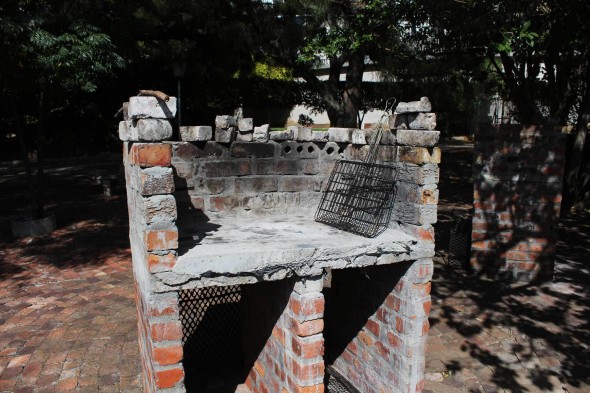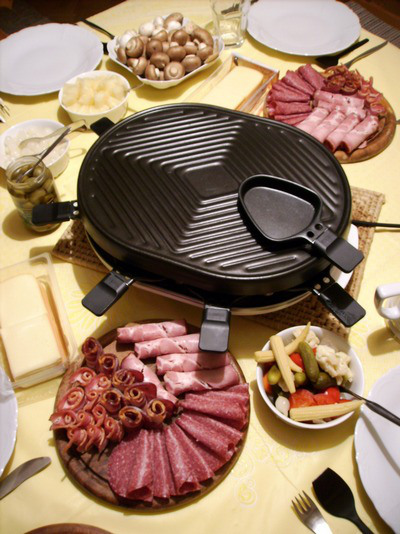
South African ‘Braai’…as Explained by a Foreigner
Previously, I mentioned several unique things South Africans do that I got to observe in the time spent living in this country (away from my homeland, The Netherlands). Recently, I saw some people walking barefoot in the local supermarket. This phenomenon comes along quite often, and my initial reaction was to offer assistance. “Did someone […]

Previously, I mentioned several unique things South Africans do that I got to observe in the time spent living in this country (away from my homeland, The Netherlands).

Recently, I saw some people walking barefoot in the local supermarket. This phenomenon comes along quite often, and my initial reaction was to offer assistance. “Did someone take your shoes?”, I asked.
Unimpressed, the girls mentioned no help was needed, and explained to me that this was their way to stay connected with the earth. Later in the queue, one of them was definitely connected with a slice of ham, some used dental floss and a cash receipt.
I forgot to mention the braai as a specific subject, as I feel this deserves a dedicated article in itself. A braai, or braaing, derives from the Dutch word ‘braden’, which means roasting.
Some might argue that a braai these days is considered more of a social event, which also just happens to involve the roasting/grilling of meat on an open fire. Regardless of how you see it, South Africans are completely obsessed with it.
You can find braai areas everywhere, especially in parks. I mean, they even have a national holiday dedicated to it (re-branded by some for Cultural Heritage day, or ‘braai for Heritage Day’) with a mascot called Jan Braai. No joke.
I guess the main purpose of a braai is togetherness and enjoying the simple way of making food outside over a long time, with a group of people. I envy the abundance of opportunity South Africans have for this.
In the Netherlands, this type of event would simply not work because of three reasons:
1. Lack of space. (There is no space. None.)
2. Lack of weather. (Whatever it is in the Netherlands, it is pathetic)
3. Lack of masculinity.
The first two are pretty self-explanatory, the latter might need some elaboration. You see, South Africans are pretty tough. In a country with such extremes, I can imagine you immediately toughen up.
Here people grow up with an abundance of meat, endless games of wrestling rugby and the constant looming of a potential hijacking at gunpoint.
For that reason, survival skills are the basics, including the making of a brutal fire. I, however, refuse to prepare a mango because it makes my hands sticky, and I cut an onion wearing a snorkel.
Most Dutch people cook fast, simple and alone.
You can get anything pre-cut and pre-cooked, so we have nothing to do but to nuke whatever is to be done. When we do gather to cook together, we have the social cooking event called ‘gourmetten’ (raclette).
This method involves putting an electrical plate on a table and having people use pans the size of a fingernail to cook one slice of mushroom. By the time one item is cooked, you’ll have started to chew your own hand or roast your family members in the oven.
If you don’t have any sense of shame or are great at pretending to cook like Frodo, this might be the thing for you.

Be careful not to confuse a South African braai with an American barbecue! These two are hardly related. Barbecues are made for laziness, safety, comfort and speed. These days, American barbecues are so sophisticated they are self-cleaning, come with a remote control, solar paneled electric fryer, GPS and a tan-bed.
South African braais are simple. A few bricks here and there, a roasting rack. That’s it. Starting it up requires some actual skills, and my few attempts have mostly resulted in setting myself on fire.
Nowadays, I’m only allowed to make the side salad.
Once everything is fired up, and you’ve got the smell of burning wood and meat coming through, you’ll most likely be busy chatting to your friends, neighbours and random bypassers. Patience is key, and you’ll probably be completely drunk before the first piece of meat ends up on your plate.
If you don’t pass out behind a tree or dance into the braaimaster, you’ll easily eat huge amounts of boerewors, steak, chicken legs and lamb chops, as everyone always brings way too much food. No one will eat your side-salad.
I have left every braai full-bellied and satisfied, and I thoroughly enjoy the social purpose of bringing everyone together for food. Nothing beats the joy of spending a day roasting meat, and South Africans can do this like no other.
Luckily I’ll have plenty of more braais to come, and I’ll try to attend all of them. Except in winter, of course. Then you guys are definitely on your own.